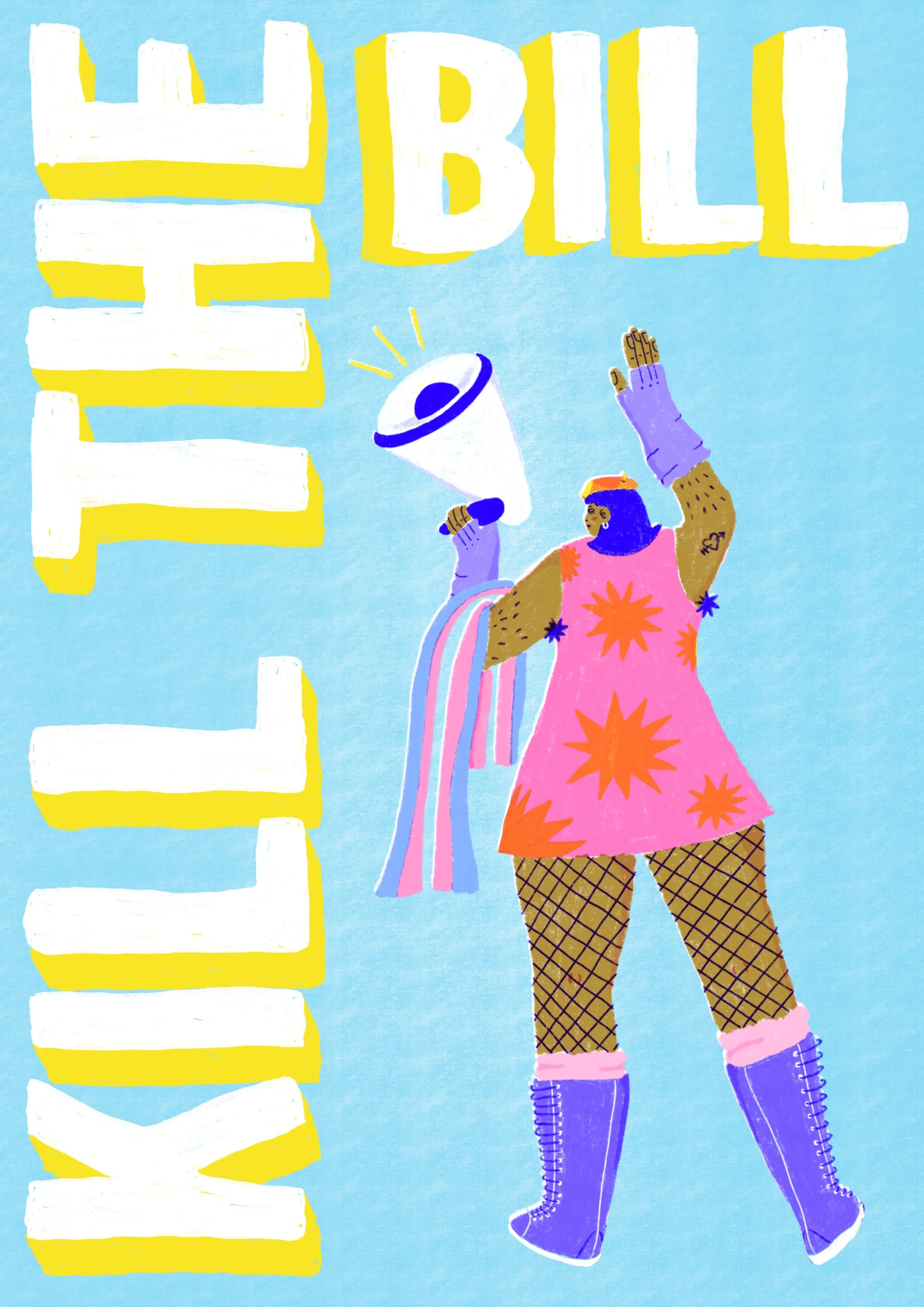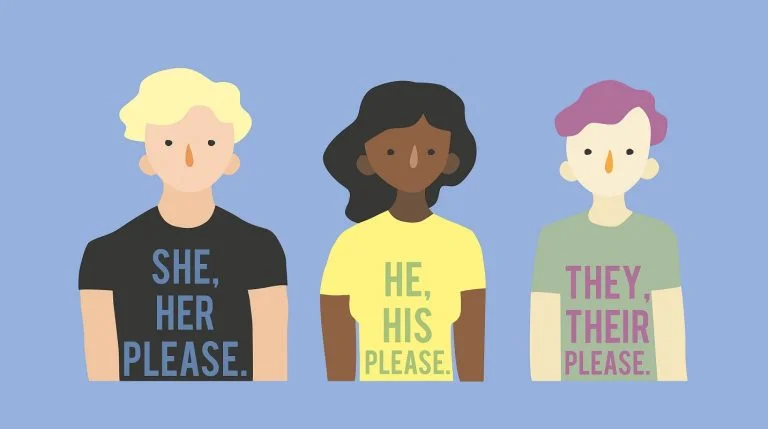‘The limits of my language mean the limits of my world’: sexism and the English language
In a particularly harrowing week for following the news, two stories have especially struck me.
Firstly, the Treccani Italian dictionary has been called on to update its definition of the term ‘woman’. It currently offers a smorgasbord of synonyms (synonyms, I tell you, a.k.a. words which mean exactly the same thing) such as puttana (whore), serva (maid) and 30 more terms used to describe sex workers. Secondly, in response to the devastating kidnap and murder of Sarah Everard, a quote from Jackson Katz’s TED talk was widely shared on social media:
“We talk about how many women were raped last year, not how many men raped women. We talk about how many girls in a school district were harassed last year, not about how many boys harassed girls. We talk about how many teenaged girls got pregnant in the state of Vermont last year, rather than how many men and teenaged boys got girls pregnant.
“So, you can see how the use of this passive voice has a political effect. It shifts the focus off men and boys and onto girls and women. Even the term violence against women is problematic. It’s a passive construction. There’s no active agent in the sentence. It’s a bad thing that happens to women, but when you look at that term violence against women, nobody is doing it to them. It just happens. Men aren’t even a part of it.”
And these stories made me think – how can we even begin to tackle the patriarchy and all its many and varied savage implications when the very language we use, the ultimate construct upon which our perception of the world is predicated, formulated and received, is misogynistically constructed?
When I was in Year 6, we spent one literacy lesson writing a story about a crocodile. We’d been given the first section of the story, and were tasked with completing it. I spent a happy hour earnestly crafting some adjective-laden tale about my crocodile, and afterwards threw my hand up Hermione-style to read it to the class.
‘Why have you referred to your crocodile as ‘she’?’ asked my female teacher.
‘I don’t know,’ I replied. ‘Because it’s a girl?’
‘The opening section doesn’t tell us it’s a female,’ replied my teacher. ‘And when we don’t know the gender of a character, we refer to it as masculine.’
The heart-breaking thing is – she was right. English is called a ‘natural gender language’, meaning that we don’t attribute a female or male (or neuter) gender to nouns such as in French, German or Spanish. This makes it even more striking that the default English language is masculine. ‘Mankind’, ‘man-power’, ‘man-made’: all refer, ultimately, to ‘humankind’, ‘human-power’ and ‘human-made’, but if I had a penny for every time I’ve seen particularly those last two in print I’d… be struggling to buy many penny sweets.
Remember the furore a few years back when some actors rebelled against being referred to as ‘actresses’? Some examples are serious (‘chairman’) and some less so (‘snowman’), but all depend on an initial assumption of masculinity, with femininity (or, God forbid, gender neutrality) clapped on as an awkward addendum. As we use these words, we build mental representations for both the speaker and recipient that systematically erase women.
I will leave the conversation around ‘history’ for another day.
Let’s go back to the dictionary discussion. The open letter calling for change was written by Maria Beatrice Giovanardi, the activist also behind the 2020 campaign to update the Oxford English Dictionary’s definition of ‘woman’. Until last autumn, my friends, suggested synonyms included ‘bint’, ‘bitch’, ‘mare’ (mare?) and, my personal favourite, ‘petticoat’. (These ‘alternatives’ are still included, with a handy label identifying them as ‘derogatory’, ‘offensive’ or ‘dated’). In comparison, Treccani’s synonyms for ‘man’ include uomo d’affari (businessman), uomo di rispetto (stand-up guy) and the totemic, you-couldn’t-make-it-up uomo d’ingegno (man of genius).
We can take this further. Ever noticed how many female insults centre around sexual behaviour, such as ‘slag’, ‘slut’ and ‘trollop’? Whilst this may appear as a hangover from when a woman’s sexual innocence equalled her marriage value – if you don’t know what I’m talking about, watch Bridgerton – it illustrates how we still view a woman’s currency through a sexual lens which simply doesn’t apply to men.
Even if you want to call a man a whore, there’s the creatively and specifically altered ‘man-whore’. Interestingly, it’s also striking how many male insults focus on accusations of femininity: ‘sissy’, ‘man-up’, and ‘grow a pair’ all condemn a man for his sensitivity, emotion and subsequent similarity to a social inferior. As with so many examples of the patriarchy, it’s not just women who are the losers.
When we look at Jackson Katz’s quote, the outcome, as has been horrifically proven this week, is particularly sinister. In his full TED talk, influenced by the work of feminist linguist Julia Penelope, Katz expounds on the impact of considering ‘violence against women’ as a topic purely concerning the female half of the population. We don’t need to ask questions about women, Katz urges; we need to ask questions about men. What is happening in society that creates such predators?
Though it’s perhaps more palatable to believe, people such as Sarah Everard’s attacker aren’t simply born or turned evil. They don’t have horns and tails, they don’t carry a spiked fork. They are formed and shaped and influenced by any number of external factors, including the lexicon that patterns our lives every day - a lexicon that has a number of inherently sexist characteristics.
In a bid to find some positivity in this mire, the very ubiquity of language that makes its influence so pervasive means it is, correspondingly, in everyone’s power to change. Before feminism’s second wave, for example, using ‘Ms’ as a title was virtually unheard of – but simply because people started using it, it is now an option in every drop-down box.
We can use ‘chairperson’ instead of ‘chairman’, we can talk about ‘male-perpetrated violence’ rather than ‘violence against women’. There's still a hell of a way to go – and that’s even without delving into wider questions of heteronormative and other non-inclusive language – but words are weapons and we can use them for the good of us all - not just the ‘bints’.
Title image by Fiona Smith.
Katherine works in heritage outreach and is based in Bristol. When she’s not busy re-examining history from a female perspective, she lives the 19th-century high-life: embroidering, wild swimming and spending far too much money on gin. Find her on Instagram @_kgwrites_.





